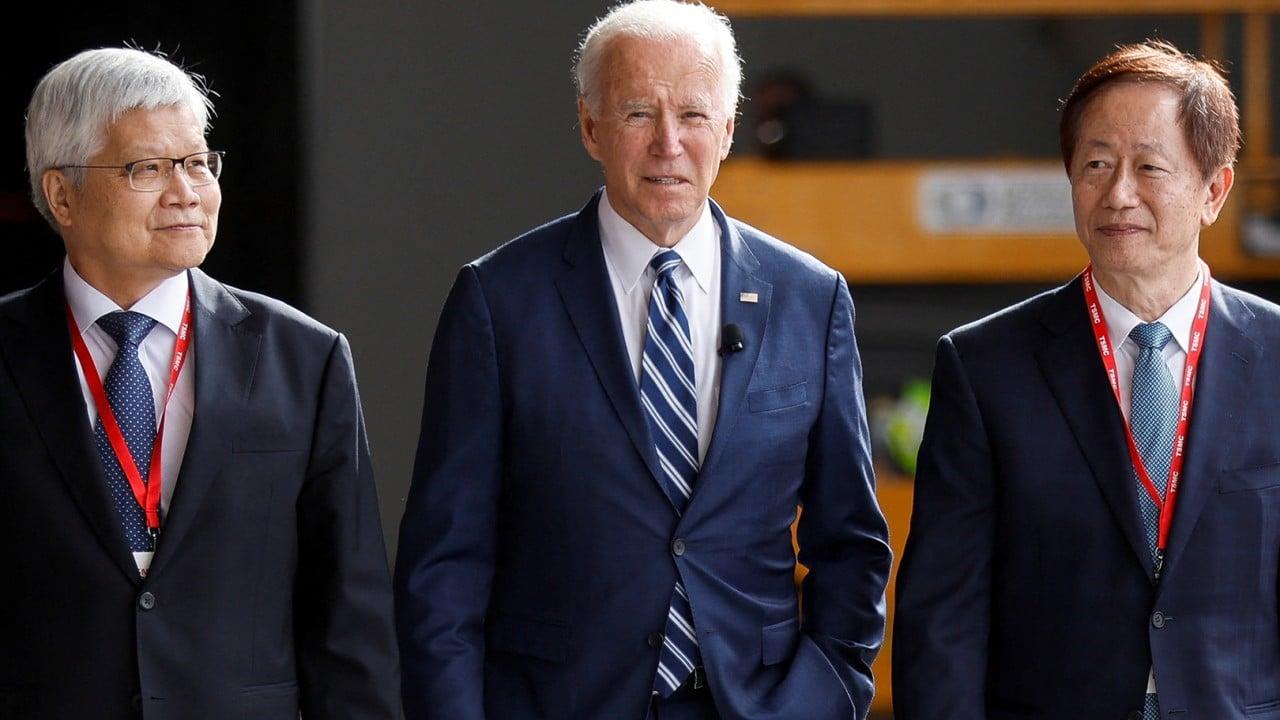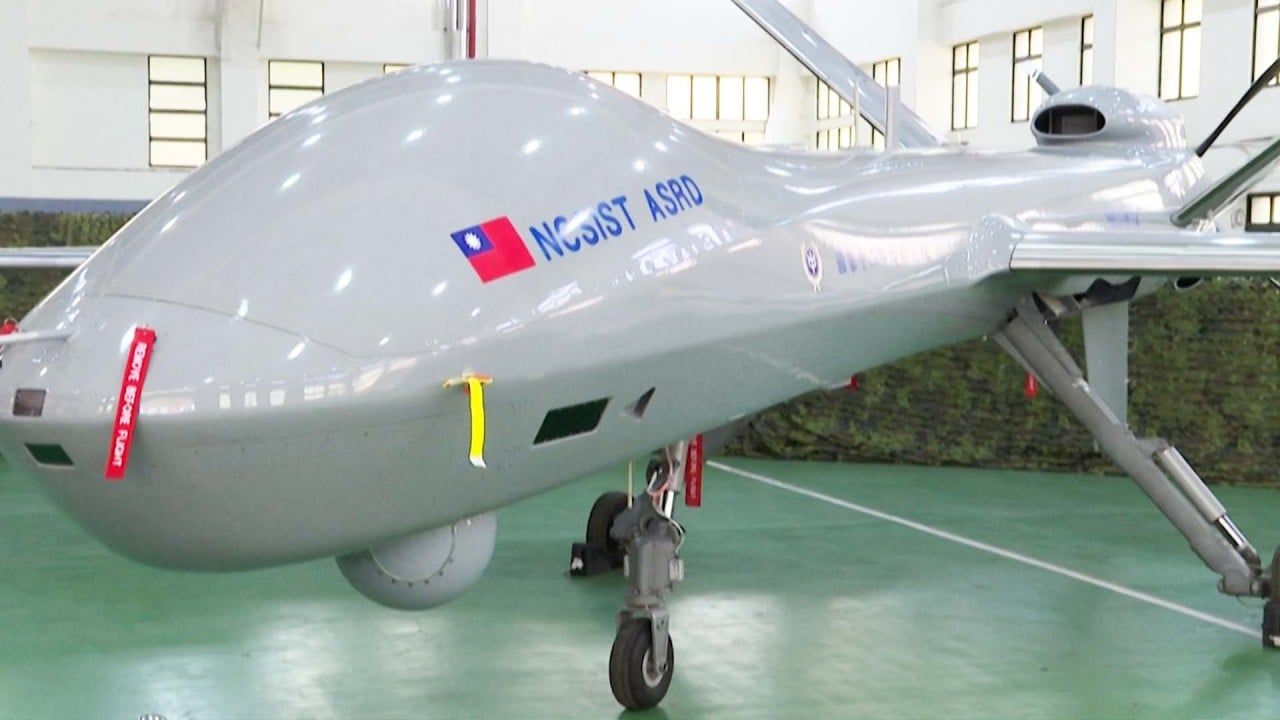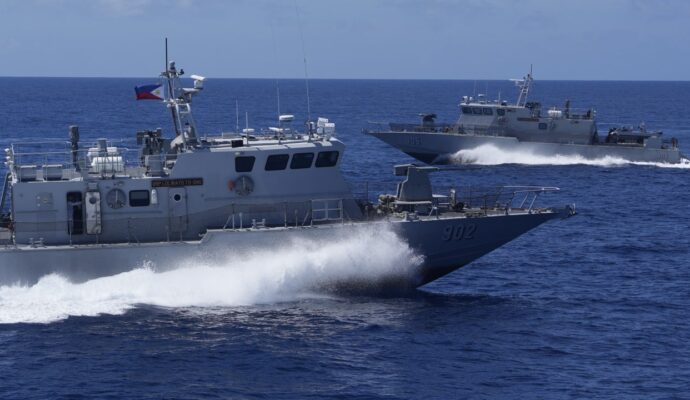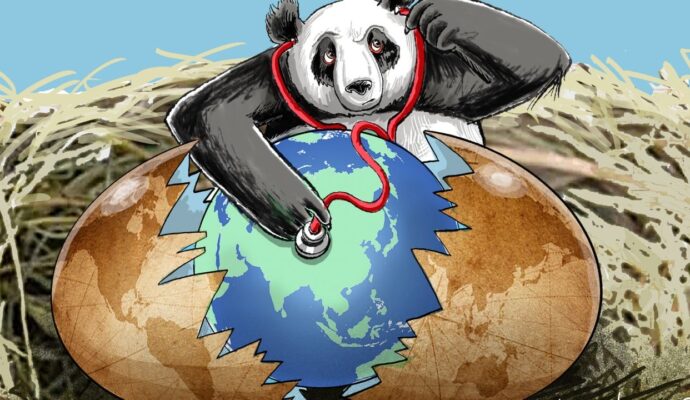
Mao condemned the deals as having “flagrantly violated” the one-China principle and the August 17 Communique – the last of three joint statements between Washington and Beijing, which concluded that the US would reduce and place qualitative and quantitative limits on its future arms sales, contingent on Beijing maintaining peaceful relations with Taiwan.
Also on Tuesday, US lawmakers unveiled a compromise version of the National Defence Authorisation Act (NDAA) for the coming financial year, which includes the Taiwan Enhanced Resilience Act (TERA) authorising up to US$10 billion in defence aid to the island.
TERA authorises US$2 billion in annual military aid for five years under an inter-agency programme that provides grants and loans to foreign governments to purchase American military equipment, services and training. It also authorises another US$1 billion annually in emergency defence assistance to Taiwan.
The bill, which is expected to pass the US House of Representatives and Senate this month, would directly finance US weapons sales to Taiwan. It would also establish Washington’s first Taiwan-specific defence modernisation programme.
According to a US State Department notice obtained by Bloomberg, Washington will also enhance a 2010 deal by selling around 100 of its most advanced Patriot air-defence missiles, as well as radar and support equipment, to the self-ruled island.
The reported deal, which has a potential total value of US$2.81 billion, has yet to be confirmed by the State Department.
Beijing has vowed to reunify the island with the mainland by force if necessary, though it has opted for a softer tone in recent months. Previous US arms sales to Taiwan were condemned by Beijing as violations of Washington’s “one-China policy”.
During his meeting with Chinese President Xi Jinping at the G20 summit last month, US President Joe Biden reaffirmed that Washington does not support “Taiwan independence”. Photo: AP
“I expect China’s response to be angry, rhetorical and diplomatic, as opposed to any dramatic displays of force,” said S Mahmud Ali, an international relations expert at the University of Malaya’s Institute of China Studies.
“As the incoming House Speaker, Republican Kevin McCarthy, plans to visit Taiwan soon, fresh tensions can be expected to mount when that happens,” Ali said, adding that the view that China is a threat has enjoyed bipartisan consensus for years.
“The US view on the need for deterring or ‘constraining’ China is unchanged. The Xi-Biden talks were a formal opportunity to calm tensions, but fundamentals were unchanged. I don’t expect any real easing of pressure.”
Following the meeting, Chinese Defence Minister Wei Fenghe met his US counterpart Lloyd Austin. Both sides agreed to improve communication, but Wei said Taiwan is China’s “red line” issue that must not be crossed.
Professor Wang Jianmin, a Taiwan affairs specialist at Minnan Normal University in Fujian province, said the latest arms sales showed that Washington had again betrayed its promise to reduce arms sales to Taiwan under the three joint communiques.
“Over the years, the quantity [of arms sales to Taiwan] has been continuously increasing and the quality has been continuously improving – far beyond the provisions of the communique,” Wang said.
Wang said Washington was “hyping up” the narrative that Beijing seeks reunification with the island by 2027, and Taiwan has used this as an excuse to work with the US on strengthening its defences.
“We should not easily believe American politicians, including Biden’s promises on issues surrounding the Taiwan Strait, which are part of a two-handed strategy,” Wang said.
“On one hand, they publicly support the one-China policy and do not support Taiwan independence. On the other, in actions, they strengthen military and political relations between the US and Taiwan,” Wang said, adding that this strategy has lasted many years.
It is crucial for Beijing to understand and respond to US actions, Wang said, given the diversity of interactions between Washington and Taipei in both words and actions.
“Further substantive countermeasures, including adjustments to China-US military cooperation and exchanges, are needed, as are adjustments to China-US joint responses to regional crises,” Wang said, adding that Beijing should retaliate against Taipei for cooperating with Washington.


